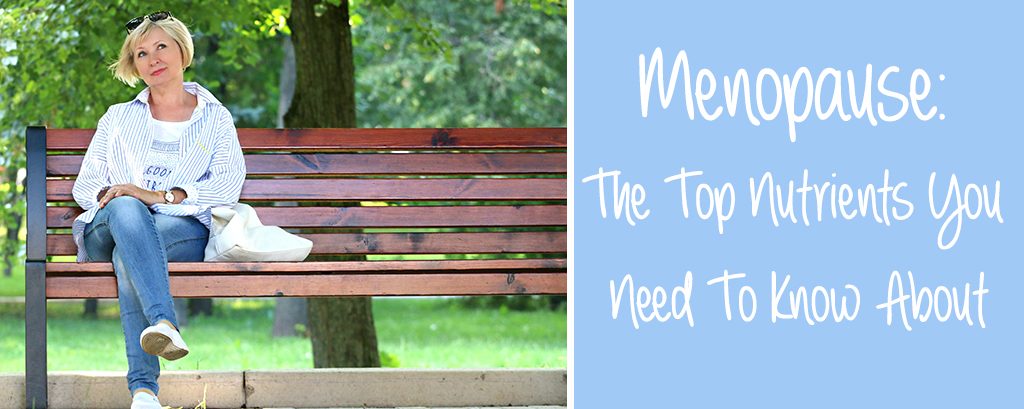Discover expert insights from renowned Dietitian Gillian Killiner. Learn how diet and nutrition empower women during perimenopause and beyond.
Diet and Nutrition: Your Best Allies in Perimenopause and Beyond
It’s crucial to recognize the profound impact that diet and nutrition can have on a woman’s journey through perimenopause and the years that follow. Who better to shed light on this topic than Gillian Killiner, a globally respected dietitian, who at 50 + yrs with an autoimmune disease, stands as a testament to the power of a personalised approach?
Why Does Diet Matter During Perimenopause and Menopause?
Perimenopause, is the term used for the transitional phase before menopause. This for many women comes with a suckerpunch of challenges such as hormonal fluctuations, weight gain, low mood and increased risk of osteoporosis. Definately honing in on a well-balanced diet can significantly assist these symptoms and promote overall physical and mental well-being, but this is just one of several areas that may need to be revisited and tweaked or indeed overhauled and this is something that we offer as part of our programmes to our patients @ 121 Dietitian. As many ladies find out, no one diet suits all, so we design programmes to ensure they work with each individual with their specific needs.
Understanding the Science Behind Perimenopause Challenges
Perimenopause is a natural biological process that every woman goes through as she approaches the end of her reproductive years. This phase, typically starting in a woman’s mid-40s, but can be earlier than this. If much earlier than this is different and called premature ovarian failure.
Perimenopause is characterized by a series of hormonal fluctuations as the body gradually ceases to produce eggs for fertilization so reproduction stops. These hormonal changes, bring about a host of challenges that need to be accepted and suitably addressed.
1. Hormonal Fluctuations:
Estrogen, is one of the primary female sex hormones, and plays a pivotal role in regulating the menstrual cycle and maintaining reproductive health. It is the most talked about and promoted hormone at this stage of life.
Interestingly during perimenopause, progesterone declines before oestrogen starts to fluctuate, and this is an extremely important part of the hormonal picture often overlooked. From years of researching and teaching about menopuase and diet Gillian is always astounded at how other hormones including progesterone and testosterone are left out or not considered when checking in with women, blood levels and their symptoms, oestrogen the focus hormone and the following areas selected below highlight this.

2. Weight Gain in Menopause:
Weight gain is a common concern during perimenopause and can be attributed to several factors, including hormonal changes, decreased metabolism, and lifestyle shifts. Again in the literatue the focus is on Estrogen, and how it is influences body composition and fat distribution. “As estrogen levels decline, women may experience an increase in abdominal fat. A study published in Obstetrics & Gynecology 2 delved into the hormonal mechanisms affecting body composition during perimenopause, emphasizing the significance of a healthy lifestyle, including diet and exercise, in managing weight gain”. Nothing about how progesterone actually assisting metabolic function, mood, sleep and menopausal weight gain.
3. Increased Risk of Osteoporosis in Menopause:
Another Estrogen focus is on bone health and how it is essential for maintaining bone density and strength. “During perimenopause, the reduction in estrogen levels can accelerate bone loss, leading to osteoporosis—a condition characterized by fragile and porous bones. Research studies, such as those published in the Journal of Bone and Mineral Research 3, have extensively investigated the link between estrogen deficiency and osteoporosis, emphasizing the importance of adequate calcium intake, vitamin D supplementation, and weight-bearing exercises to support bone health during and after perimenopause”.
No mention of Progesterone when we know Progesterone, can promote the production of osteoblasts which are required to effect new bone formation. Natural progesterone has been shown to stimulate osteoblast-mediated new bone formation which is required to prevent and reverse osteoporosis
Here is a video on osteoporosis you might find helpful.
Gillian is passionate on getting the correct information to her patients and for the past 15 years been highlighting the need to address more than just oestrogen depletion. In fact she helps 100’s of women each year with hormonal issues including, cortisol, testosterone, insulin resistance, oestrogen dominance and more.
Understanding these physiological changes at a scientific level underscores the critical need for proactive measures to support women’s health during perimenopause, menopause and after. This blog has only scratched the surface. A balanced lifestyle and a diet rich in essential nutrients, along with regular physical activity, not only alleviates these challenges but also ensures women can embrace this natural life transition with confidence and vitality.
By leveraging the insights provided by scientific research, women can make informed choices about their diet and lifestyle, ensuring a smoother journey through perimenopause and beyond. Something that our mothers and grandmothers didn’t have the luxury of.

Gillian Killiner’s Top Expert Tips:
- Whole Foods: Incorporate plenty of fruits, vegetables, whole grains, and lean proteins into your diet. These foods provide essential nutrients vital for hormonal balance and assists aging.
- Prioritize Vitamin D: crucial for bone health. Include dairy products, leafy greens, and fortified foods in your diet and get some safe sun to support strong bones.
- Healthy Fats are Friends: Opt for sources of healthy fats like avocados, nuts, and fatty fish. They support brain health and can help manage mood swings and irritability.
- Stay Hydrated: Drink plenty of water to maintain hydration levels, especially if you’re experiencing flushes.
- Protein: Adequate protein intake becomes vital for muscle maintenance, bone health and strngth.
FAQs About Diet and Perimenopause:
Q1: Can diet really impact menopausal symptoms? A1: Absolutely! A balanced diet can help manage weight, reduce hot flashes, and support emotional well-being during this phase.
Q2: Are there specific foods to avoid during perimenopause? A2: Limit caffeine, alcohol, and super spicy foods as they can trigger hot flashes and disturb sleep, subtle spices can be antinflammatory.
Q3: Is exercise important alongside a balanced diet? A3: Yes, regular exercise complements a healthy diet, enhancing overall fitness, builds muscle, bone health, reduces fat and enhances mood stability.
The Importance of Nutrition Beyond Menopause:
With aging, the body’s nutritional requirements evolve however we should allow Menopause to mark the beginning of a new chapter. It can be scary for all women.
Gillian Killiner -” for me in my 50’s with no functioning thyroid and a very busy and hectic life, I am seeing the start of physical changes that I will monitor and maybe update you on! So far I have not changed in clothes size from size 8 since I was age 18 so for me this will be an interesting journey. I am fortunate that I have only a few grey hairs but definately not liking the wrinkles!! Hormones are still working, sleep is good, I have always been consistent with eating a diverse and colourful diet and love walking my dog, I am no different to anyone else when it comes to health and the uncertainties of life we have just got to navigate it as best we can with assistance, knowledge and self care”.
Closing Thoughts:
World Menopause Day each year encourages us to reflect on the importance of women’s health. By embracing a the need for a rethink on lifestyle, health and diet, women can navigate perimenopause and beyond with vigour and vitality. However one day is not enough we need to be celebrating and lifting women up everyday as it is not an easy path.
Age is just a number, and when you feel good with the right diet and lifestyle choices, and maybe a little helping hand, you to can continue to thrive, just like Gillian Killiner, who inspires us all with her wisdom and vitality.
If you have any questions or wish to seek further advice on your menopause journey please do get in touch.
If you want to book your programme TODAY we would love to help you.
You can book a 121 Dietitian Programme today by clicking on the link below
If you have enjoyed this blog we would love you to share this with your family and friends on your social media channels. Do visit our YouTube Channel for more on keeping your health optimal.
If you are interested in how I overcame my Thyroid Autoimmune Condition do check out the About section below
Before you go please check out our 121 Dietitian Shop created specifically for optimising your health.
Gillian x
Links included in this description might be Amazon affiliate links. If you purchase a product or service with the links that I provide I may receive a small commission.